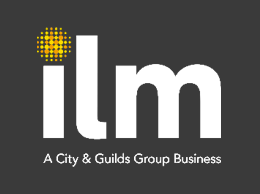Working in sales or account management can be a daunting task. Finding the right person for the role is even more difficult. That is why it becomes hard for companies to recruit highly productive salespeople. A common misconception about sales is that you need to be an outgoing extrovert in order to be successful. The reality is different, and plenty of introverted people are wildly successful in sales, often because they are excellent listeners and are able to build trust with their prospects.
Multiple studies have shown that there are no inherent personality traits that can predict whether somebody will be successful in sales or not. Therefore, any type of person can make a great living, as long as they’re willing to work for it.
Looking at some of the key traits of what makes a successful salesperson, identifies that there are basic skills that are not overly complicated but vital to building relationships with customers.
- Optimism – An individual has the persistence to handle rejection and not consider this as an act of failure but an opportunity to develop new approaches and techniques.
- Empathy and Ability to Listen – You will need to have patience to listen to the needs of the prospective customer this will aid the relationship and give the customer the confidence that you will find the solution.
- Responsibility and Discipline – Always be ready for calls, demo’s, or meetings with clients. Good salespeople don’t wait until the last minute, instead, they are prepared beforehand to serve the clients. They will follow up with the clients constantly and strive hard to make a personal relationship with them.
- Being Active – Proactivity is key, sometimes a good salesperson will go one step further than prepping for a meeting, they will be looking at the bigger picture and looking on how to plan their whole day, week or even month in order to provide effective sales.
- Ready to Learn – Constantly driving for growth of the company and not just themselves as an individual. Knowledge is power, a good salesperson makes sure he has gained the right knowledge related to his product and industry so that he can easily keep the conversation going.
- Charismatic – A charming and positive personality can help when attracting potential customers and grabbing attention. Not only this, but a salesperson should also have ample confidence to convince his customers to buy the product or service. They should know how to talk to a client and show unwavering commitment.
Here at Futureproof, the above characteristics often underpin many of our sales and account management training courses and programmes, particularly our Trusted Advisor workshop. Gone are the days of cold calling, a Trusted Advisor is someone who works collaboratively with their clients as a strategic partner providing advice and guidance which is tailored to the needs and objectives of their customer.
Our “The Role of the Trusted Advisor – Modern Day Selling” workshop is aimed at sales professionals and business consultants who want to learn how to develop stronger relationships with clients and make the transition from being a supplier of services or products to becoming a trusted advisor to add real value to client’s businesses.
Contact us about this and other topics at info@futureproof-training.co.uk to find out more.






